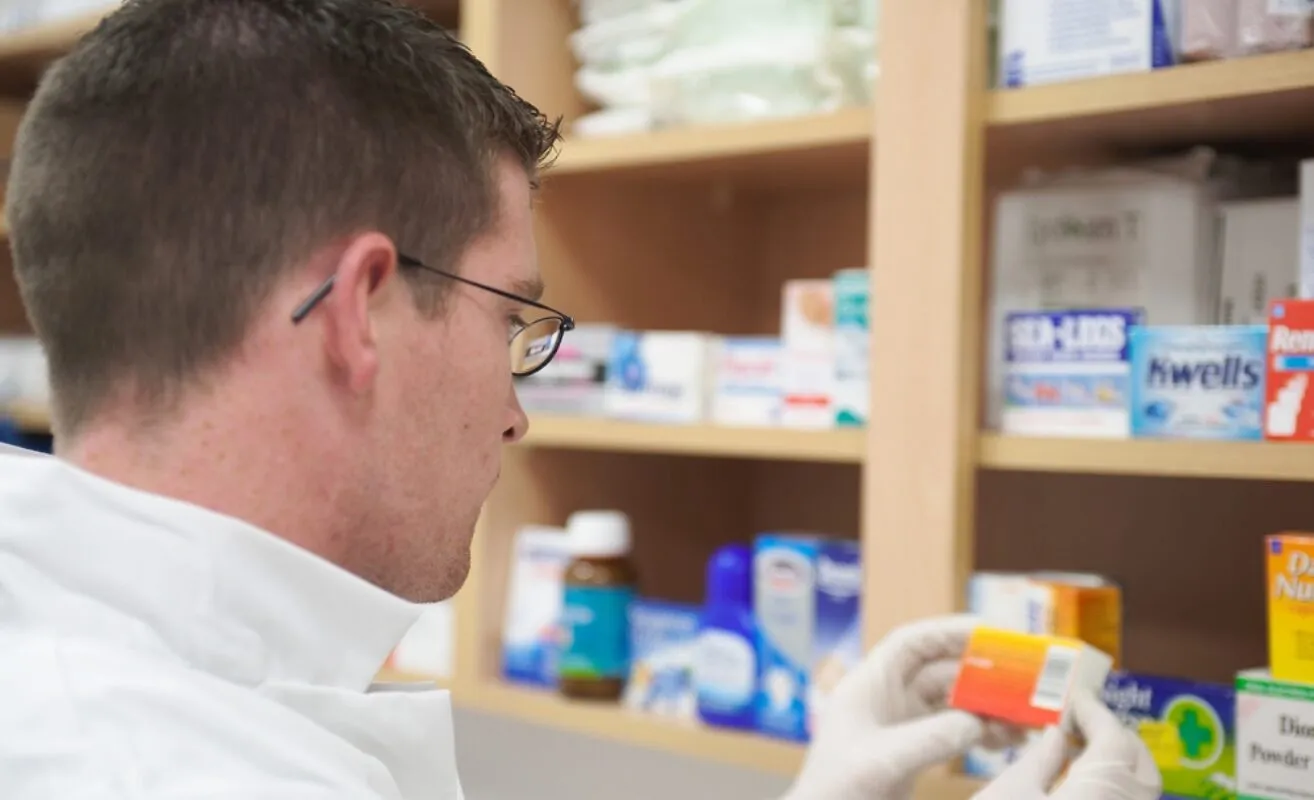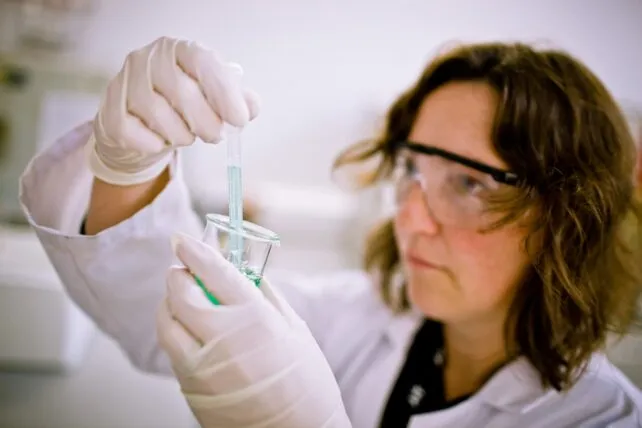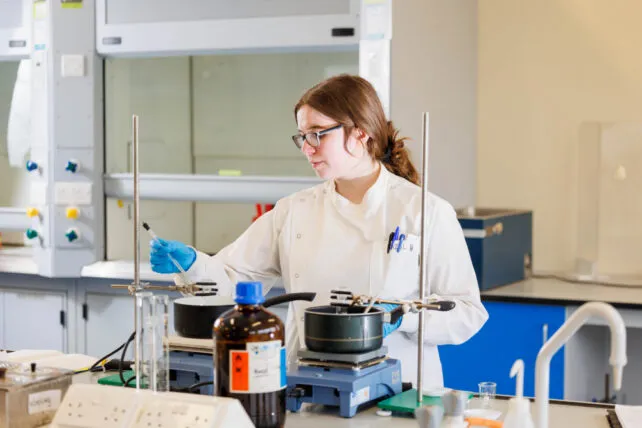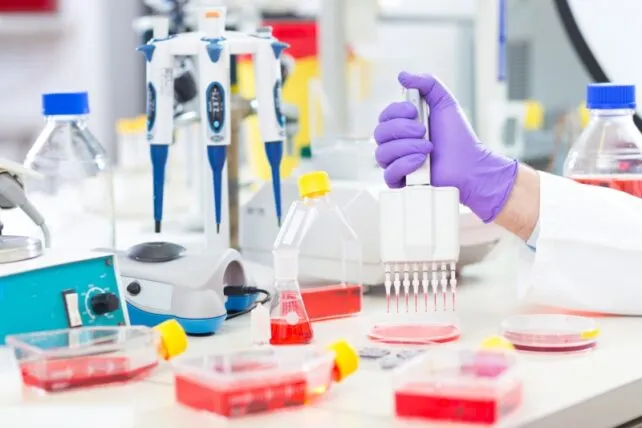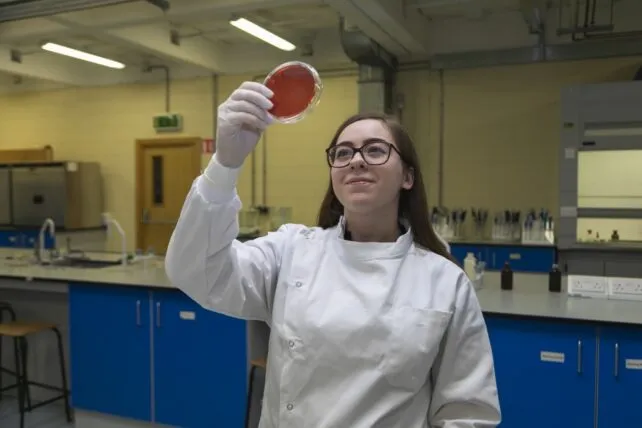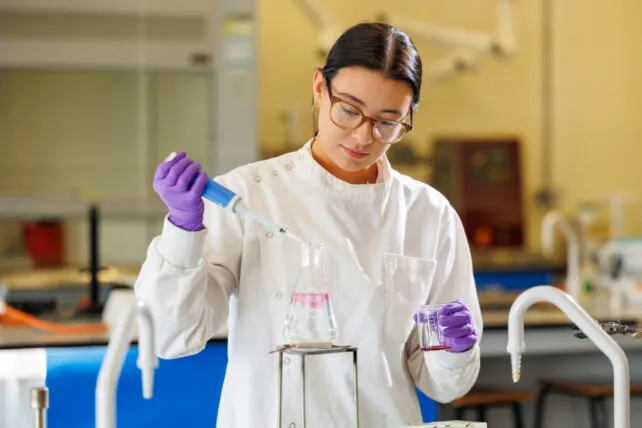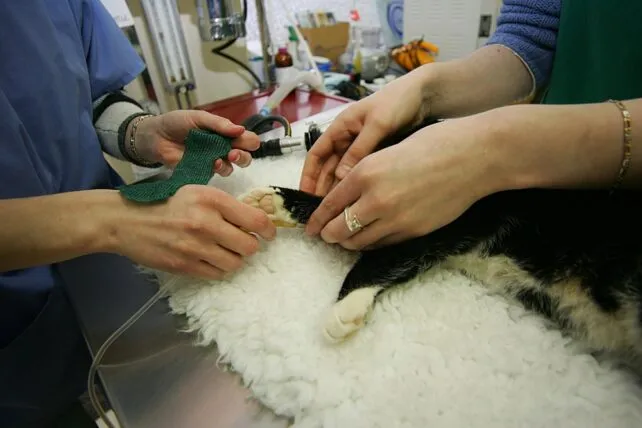This programme provides the essential information and skills required for employment in the modern pharmaceutical sector. Students acquire operational knowledge of the development of chemical based and next generation, biotech-based therapeutics and their formulation into safe and effective medicines of high and durable quality. Using sophisticated apparatus and instrumentation, you will develop the bench and analytical skills that will give you a range of career options. In addition, we will help to grow the interpersonal skills required for you to interact with colleagues from other disciplines.
This is an ideal programme for students interested in a career in the pharmaceutical industry delivering synthetic, formulation, analytical, and transferable skill sets. It combines enabling know-how across a range of methodologies critical to the successful development of marketable therapeutics. In supporting a strong local cluster of drug substance, finished product pharmaceutical, diagnostic reagent, and medical device manufacturing, we regularly consult with companies to maintain the currency of our course provision.
In addition, we will help to grow adaptable, interpersonal attributes required for you to interact and engage effectively with colleagues from other disciplines. Of particular note, during semester two of Year 3 students avail of the incorporated, Work Placement, typically within the facility of a host industrial partner. Such undergraduate real-world, relevant experience is uniquely transformative for an individual learner and key for the provision of work-ready graduates.
In summary, the continued growth and prosperity of the pharmaceutical industry in Ireland is is highly dependent on the generation and attraction of skilled graduates and this course is designed to give you the knowledge and competence to enter industry or proceed to further undergraduate study such as Year 4 of the BSc (Hons) in Pharmaceutical Sciences offered by TUS. The Midlands Region is a hub for many pharma and healthcare companies and this degree programme supports that growth.


